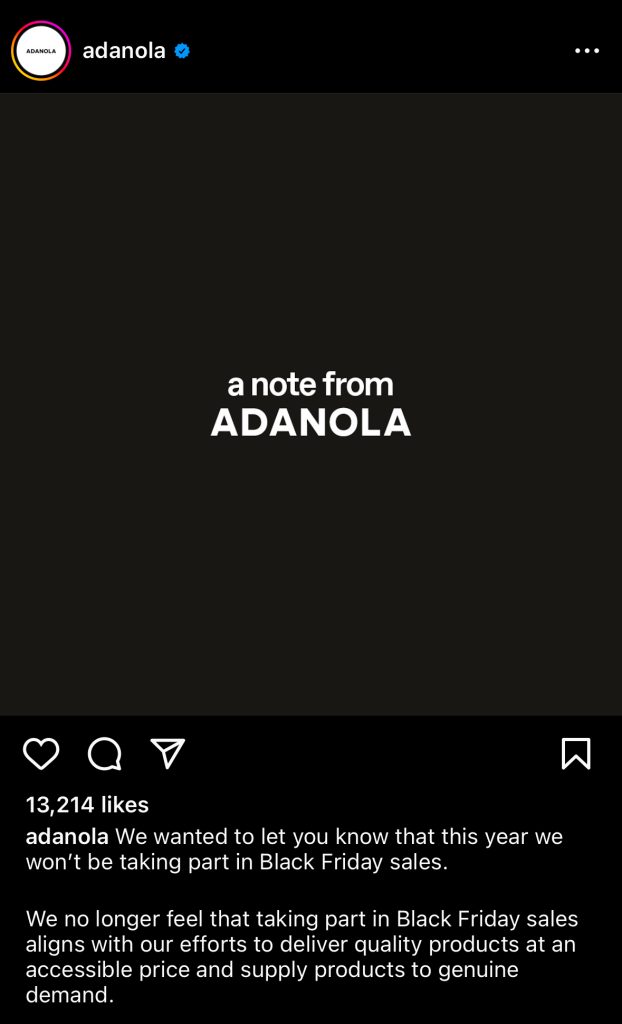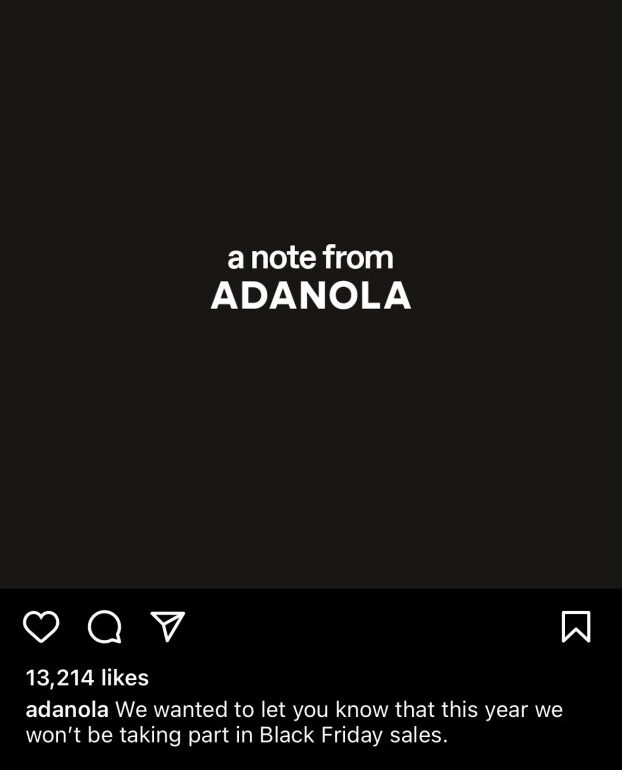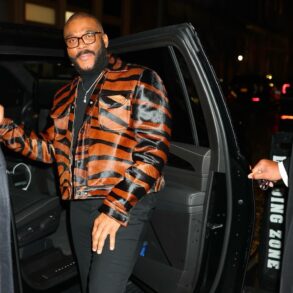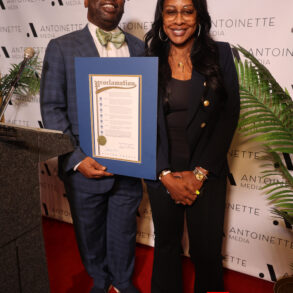Latest data from the Office for National Statistics (ONS) published on Friday (17 November) show that non-food store sales volumes dropped by 0.2% in October in the face of unseasonable weather, following a 2.1% fall the previous month.
Slumping sales have prompted some retailers to launch Black Friday offers earlier and with greater discounts than last year – or ever before. One of such businesses is John Lewis, which was one of the first retailers to commence the discounting holiday with Black Friday Sale event on 2 November.
Other high street retailers followed suit and by mid-November, the market was awash with offers from clothing retailers Jojo Maman Bébé, Kitri and Nobody’s Child as well as leather goods and footwear brands Radley and Sebago.
Although originally a US-focused event, having originated in the 1950s and taking place the day after Thanksgiving, Black Friday has gradually replaced British discounting dates of the past – such as Blue Cross or Boxing Day – as the biggest Sale of the year. Auditing firm Ernst & Young’s survey of 1,000 UK consumers published on 9 November found that 45% respondents are planning to participate in Black Friday shopping this year, with 65% of shoppers delaying purchases until Black Friday.
Amid the growing popularity of Black Friday in the UK, some businesses have been heavily criticised for not taking part in the discounting. On 14 November, British activewear brand Adanola issued a statement on social media platform Instagram, where the business has 590,000 followers, announcing it “won’t be taking part in Black Friday sales”.
Advertisement
“We no longer feel that taking part in Black Friday sales aligns with our efforts to deliver quality products at an accessible price and supply products to genuine demand,” the statement read.

Within hours, Adanola’s Instagram post had amassed hundreds of comments, many of them critical of the decision. The brand’s owner and CEO Hyrum Cook told Drapers that although he had not expected such a strong backlash, he stands by his decision to boycott Black Friday.
Despite the negative comments, there are several reasons why fashion businesses can benefit from not participating in Black Friday. Andrea Baldo, CEO of Scandinavian premium womenswear brand Ganni, warns against diluting consumer demand with excessive discounting:
“Every time you hold a promotion, you create the expectation for your customers that they can buy [your products] for less than the full price. That is not a good thing for the brand – it can be detrimental.”
For this reason, Ganni avoids discounting more than 40% off full retail price and outside its Summer Sale, which falls in July.
Advertisement
Baldo told Drapers that heavy discounting is often symptomatic of a business being “in trouble”.
“The length of time and the percentage of the Sale are important. A 10% or 20% discount is an opportunity [to boost sales], but when you have a 50% or 70% discount, this is clearly an issue with the business model of the brand,” he said.
Ganni and Adanola are joining a growing raft of retailers boycotting Black Friday and raising awareness of the problem of overconsumption in fashion. Instead of discounting their products, British fashion brands Aligne and Lucy & Yak are redirecting the attention of consumers onto charity partners and changing their approach to discounting to better corrrespond with their strategies and ethos.
Aligne managing director Virginia Seymour told Drapers: “Last year, we decided to take an alternative approach, opting to not participate in Black Friday.
“As a small brand, not taking part in flash Sales is more aligned with our ethos and the brand’s shift to a direct-to-consumer business.”
In February 2023, Aligne made the decision to streamline its stockist count from close to 60 to two. The remaining two wholesale partners – London’s luxury department store Liberty and URBN-owned womenswear retailer Anthropologie – currently account for 5% of Aligne’s sales, with 95% derived from DTC. This is in sharp contrast to July 2023, when wholesale accounted for 60% of the business’s sales. The shift to DTC has allowed Aligne to implement its Black Friday boycott across all channels.
Instead of Black Friday and Cyber Monday, last year Aligne started participating in Giving Tuesday. Held on the Tuesday after Cyber Monday, Giving Tuesday is a social media-driven initiative which raises awareness of charities, providing them with the chance to raise more money for their cause than they would on an average day.
Seymour says: “After an industry-wide moment of consumption, it is important to shine a light on amazing charities doing amazing work, [including] Smart Works, a charity we partner with all year round.
“Smart Works do incredible work helping women re-enter the workforce across the UK. Throughout Cyber Week this year, we will be sending 1,000 mailer bags in our e-commerce orders, and Aligne will be covering the price of postage. We will also be giving our customers the opportunity to donate directly to Smart Works throughout the week. On Tuesday, 28 November, we will be running our ‘Buy a Dress, Give a Dress’ campaign, where we will donate a dress to Smart Works for every dress purchased on our website,” she adds.
For Black Friday this year, womenswear and denim brand Lucy & Yak created a limited-edition version of its twill dungaree that will launch on Tuesday (21 November), with all proceeds from its sales going to the Fior Di Loto Foundation – a charity providing free education for more than 700 impoverished girls living in Pushkar, India. The brand will not be discounting items.
Lucy & Yak co-founder Lucy Greenwood tells Drapers: “It only felt right to use Black Friday as a way of supporting a charity with people-focused purpose.
“We’ve always wanted to show that business can be done differently – in a way that upholds a positive environmental and social impact – and, at a time where rabid consumerism and waste are often encouraged, it’s even more important for us to stay true to this value,” she adds.
This post was originally published on this site be sure to check out more of their content.









